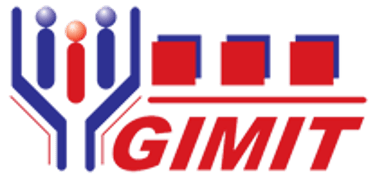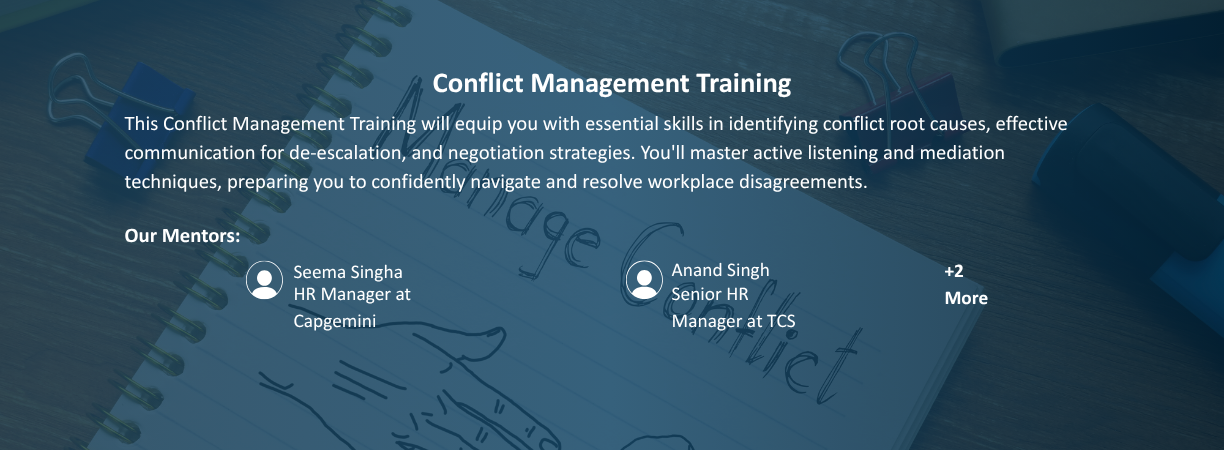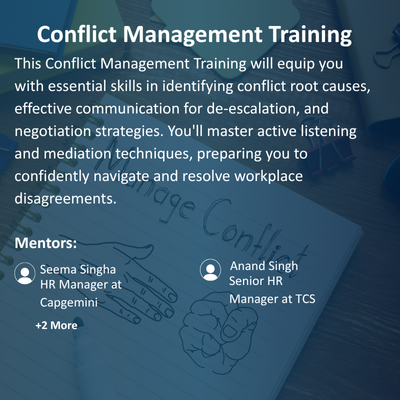



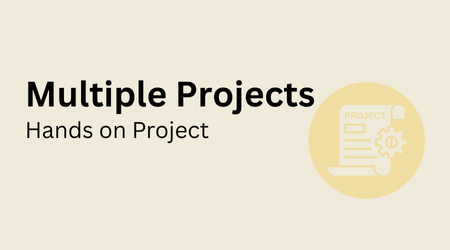

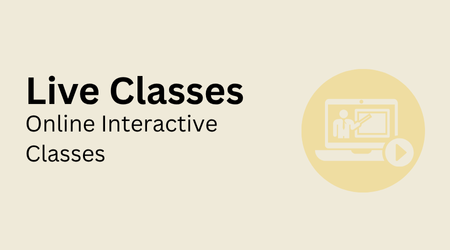

Major Industry Recruiters


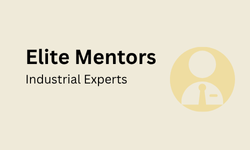



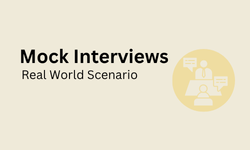

Major Industry Recruiters
Course Description:
The Conflict Management Training is designed to equip individuals with the skills and strategies needed to effectively manage and resolve conflicts in the workplace and in personal interactions. Conflict is an inevitable part of any organization, but how it is handled can make the difference between growth and stagnation. This course provides participants with tools to understand the sources of conflict, assess situations, and implement resolution techniques that foster collaboration and improve relationships. Whether you're a team leader, manager, or an individual contributor, this training will help you navigate conflict constructively and strengthen your interpersonal communication skills.
Course Objective:
By the end of this training, participants will be able to:
Understand the nature and causes of conflict in various contexts.
Identify the different types of conflict (e.g., interpersonal, intrapersonal, organizational).
Develop strategies for preventing conflict and managing it proactively.
Use various conflict resolution styles effectively based on the situation.
Apply techniques for negotiating and finding mutually beneficial solutions.
Improve communication skills to prevent misunderstandings and enhance collaborative problem-solving.
Foster a positive, respectful work environment by effectively managing conflict.
Enhance leadership skills by learning how to handle conflicts within teams and organizations.
Course Module:
Module 1: Introduction to Conflict Management
Understanding conflict: Definition, types, and sources of conflict.
The role of conflict in personal and professional growth.
The impact of unresolved conflict on teams and organizations.
Module 2: Conflict Styles and Responses
Overview of common conflict styles (Avoiding, Accommodating, Competing, Compromising, Collaborating).
Assessing your conflict style and understanding its impact.
Adapting your style to different conflict situations.
The benefits of using a collaborative conflict resolution approach.
Module 3: Communication Techniques for Conflict Resolution
The importance of active listening and empathy.
Techniques for clear and assertive communication.
Non-verbal communication and its role in conflict management.
How to communicate without escalating conflict.
Module 4: Negotiation and Problem-Solving Strategies
The basics of negotiation: Understanding interests vs. positions.
Creating win-win solutions through problem-solving.
Using mediation techniques to resolve conflict.
Strategies for finding common ground and overcoming resistance.
Module 5: Managing Conflict in Teams and Organizations
Common team dynamics that lead to conflict.
How to manage team conflict and maintain morale.
Conflict resolution at the organizational level.
Building a conflict management framework for your team or organization.
Module 6: Conflict Prevention and De-escalation
Identifying early signs of conflict and intervening before it escalates.
Conflict prevention techniques: Setting expectations and fostering a positive work culture.
Strategies for de-escalating heated situations.
Building trust and mutual respect to prevent future conflicts.
Module 7: Practical Conflict Management Exercises
Case studies and role-playing exercises to practice conflict resolution techniques.
Analyzing real-world conflict scenarios and identifying resolution strategies.
Peer feedback and group discussion on approaches to conflict management.
Module 8: Building a Conflict-Resilient Organization
Creating an organizational culture that embraces conflict resolution.
Training leaders and teams to handle conflict constructively.
Building long-term conflict management strategies.
How to evaluate and continuously improve conflict management practices.

Upcoming Batches: Choose as per Your Requirement
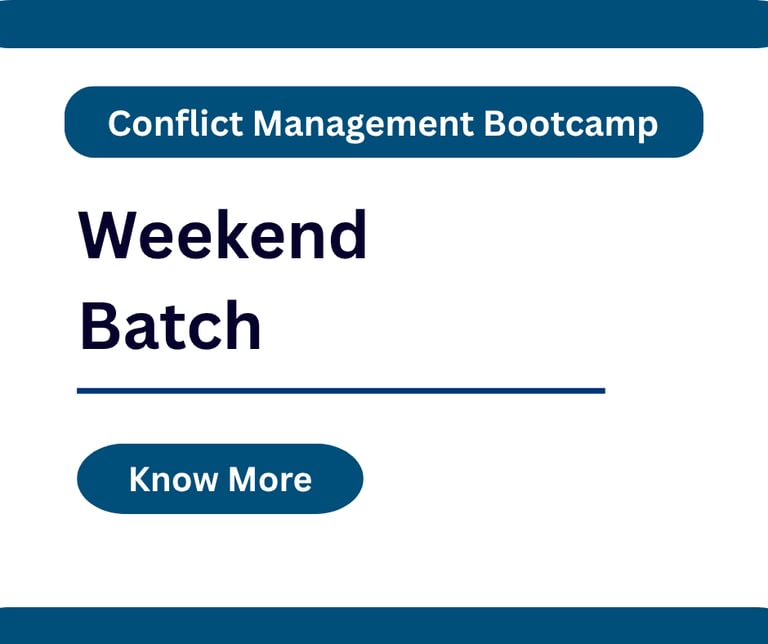

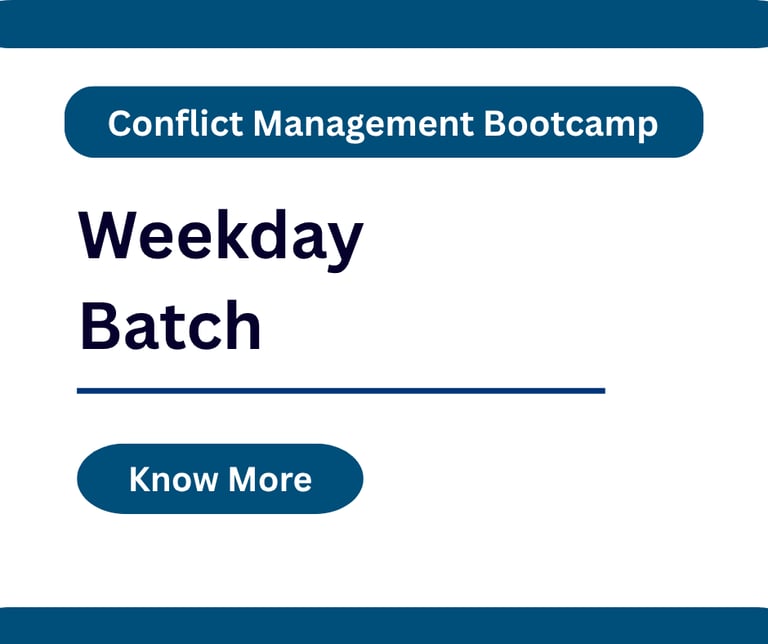

Our Mentors:
Seema Singha
HR Manager in Capgemini
Anand Singh
Senior HR Manager in TCS
Vishal Rathi
Senior Business Consultant in EY
Ishika Banerjee
HR Manager in PwC
Our Mentors:
Seema Singha
HR Manager in Capgemini
Anand Singh
Senior HR Manager in TCS
Vishal Rathi
Senior Business Consultant in EY
HR Manager in PwC
Ishika Banerjee
Our Alumni Work at Top Companies
FAQs – Conflict Management Training at GIMIT
1. Who should attend this course?
Managers, team leaders, and supervisors who need to manage and resolve conflicts within teams.
HR professionals and organizational development specialists who handle workplace issues.
Individuals who want to improve their interpersonal communication and conflict resolution skills.
Anyone seeking to foster a positive work environment by learning how to handle conflict effectively.
2. What will I learn in this course? You will learn how to identify the causes of conflict, develop strategies for resolving it, and use effective communication and negotiation techniques to build collaborative solutions. The course will also teach you how to manage conflicts in teams and organizations, and how to create a conflict-resilient work culture.
3. What are the prerequisites for this course? There are no specific prerequisites for this course. However, some familiarity with basic communication and leadership principles will be helpful.
4. How long is the Conflict Management Training? The course is typically conducted over 1-2 days, depending on the depth of content and the number of practical exercises.
5. Is the course available online? Yes, this course is available in both in-person and live online formats, offering flexibility for participants to attend from any location.
6. Will I receive any materials or resources? Yes, participants will receive a course workbook, conflict management templates, case studies, and access to resources to reinforce learning and help apply techniques in real-world situations.
7. How will this course benefit my career? This training will equip you with valuable skills in managing conflicts, improving team dynamics, and enhancing your leadership capabilities. These skills are essential for building strong working relationships, creating a positive organizational culture, and advancing in leadership roles.
8. What is the format of the course? The course combines theory with practical exercises, including group discussions, role-plays, and case studies to apply conflict resolution techniques in realistic scenarios. There will also be opportunities for feedback and reflection.
9. Will I receive a certificate after completing the course? Yes, participants who successfully complete the course will receive a certificate of completion in Conflict Management from GIMIT Education Institute.
10. How can I register for the course? You can register for the course on our website or by contacting our team directly. We offer both scheduled sessions and customized training for organizations.
11. Can I get individual feedback during the course? Yes, there will be opportunities for individual feedback during the role-playing exercises and case study discussions. The instructor will guide you on how to apply conflict management techniques to your specific situation.
12. How does conflict management benefit an organization? Effective conflict management helps reduce workplace tension, improves team collaboration, boosts productivity, and creates a healthier work environment. Organizations with strong conflict management capabilities are more adaptable, innovative, and resilient in the face of challenges.
